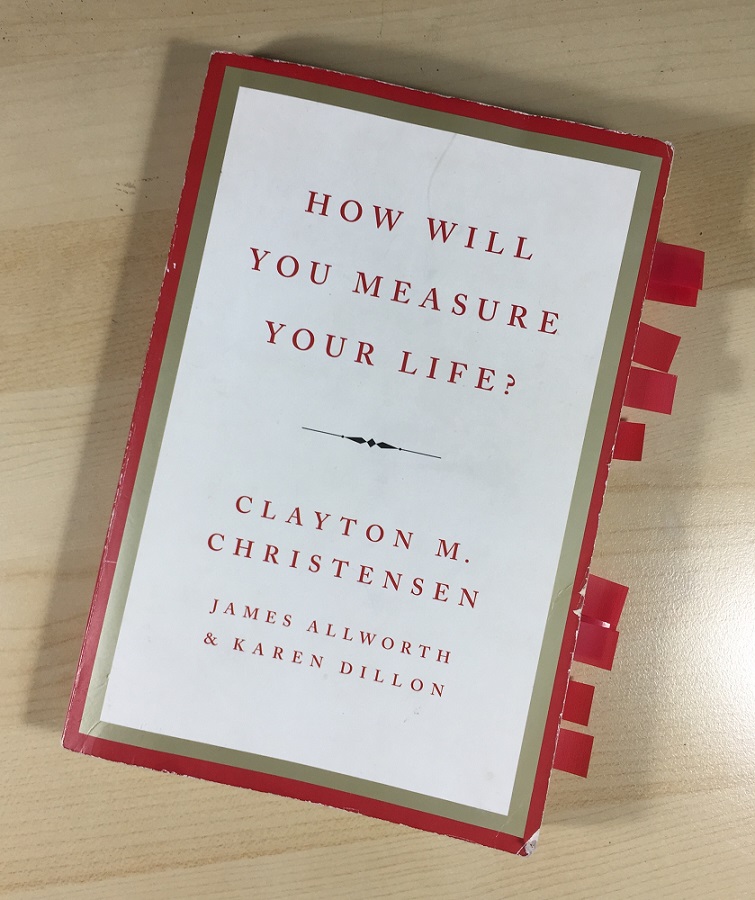What's Your Life Purpose?
At the end of Clayton Christensen’s book, How Will You Measure Your Life, he explains his life purpose and how he discovered it.
Then he goes further - he explains how he’s going to measure it.
This is the difference between knowing what you want to achieve in your life (e.g. be a good person, be there for family) and knowing how to achieve it.
Why Does This Matter?
Christensen teaches business theory at Harvard Business School. At the end of the course, he and his students apply the theories they’ve learned to their personal lives. They evaluate not what they want to happen in their life, but rather what the theories predict will happen in their life. How Will You Measure Your Life is about this process.
His business theories, as useful as they are, only predict results. They’re just tools. They get you places but don’t tell you what places to get to.
Your purpose, should you figure it out, will tell you what places to work towards.
I worry about being someone who lays on his death bed in regret, wishing that he’d lived differently. It’s what’s driven me to figure out and work towards my purpose. I use my purpose every day. I can’t recommend enough that you take the time to do the same.
The Components of Purpose
Christensen holds that the purpose of a company involves three characteristics:
The image of what the company wants to have become at the end of the path they’re on (the way painters sketch an image in pencil before attempting it in paint).
The commitment to this image.
The metrics by which they’ll measure their progress.
Every company has a purpose, whether it was deliberately set or unintentionally created. The purpose sets the priorities and shapes the rules through which the managers and employees act. Without a deliberate purpose, most companies, their products, and their leaders will eventually fade away and be forgotten.
Organizations with a “clear and compelling purpose,” Christensen says, can have an extraordinary impact and legacy.
I believe this holds true for people: people with a clear and compelling purpose can have an extraordinary impact and legacy.
Christensen’s Life Purpose
Christensen created his purpose in the model set out above. He first focused on the image of the man he wanted to be:
A man who is dedicated to helping improve the lives of other people
A kind, honest, forgiving and selfless husband, father and friend
A man who doesn’t just believe in God, but who believes God.
He was committed. He spent an hour a day during an overseas (graduate(?)) program to pray and meditate on his purpose. He did this even when there were other (very) important priorities competing for his attention. My view: This commitment is super important. It is what makes this a priority. And so you treat it like a priority and it eventually gets figured out.
For Christensen, the hardest part was figuring out the metrics. After many years, and for deeply personal reasons, he realized that he would measure his life by “the individuals whom [he was] able to help, one by one, to become better people.”
In my life, the metrics feel like the most important component of life purpose. I know who I want to be and the metrics tell me how to be that person. They guide my actions every day.
What does this mean for you?
How clear are you on your purpose? Your “Why”?
This process is actually fairly simple: 1) think of who you want to be, 2) spend time making sure it’s right, and 3) commit to it and live it every opportunity you get.
This is a deeply personal process. Christensen’s answers are unique to him. Your answers will be unique to you.
This means that you have to do the work yourself. It’s simple, but that type of commitment is often not easy. “Please remember that this is a process, not an event.”
By finding out your own purpose, you can live your life the best way possible: on purpose. Your purpose.
What will you do?
I want to leave you with this quote from Christensen, as he discusses the time he spent meditating on his purpose instead of studying:
[The process] was hard. Every hour I spent doing that while at Oxford, I wasn’t studying applied econometrics. At the time, I was conflicted about whether I could really afford to take that time away from my studies, but I stuck with it.
Had I instead spent that hour each day [studying instead], I would have badly misspent my life. I apply the tools of econometrics a few times a year, but I apply my knowledge of the purpose of my life every day.
Drop me a line and let me know how this article is landing with you.

